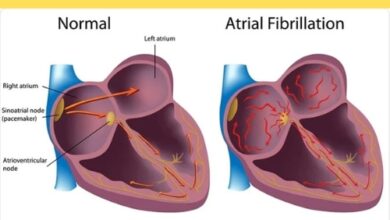Sounds of Life: The Incredible Influence of Music on Human Development

Music has an incredible power to shape and impact our lives. It has the potential to influence our thoughts, emotions, and even our physical well-being. Music can also have a profound effect on human development and the overall quality of life. We will explore the incredible influence of music on human development and how it can be used to promote health and well-being. We will look at the various ways music can be used to enhance our cognitive abilities, increase self-awareness, and even boost our mood.
The Science Behind the Music
Music has long been regarded as a powerful tool for human development and well-being, but what exactly is the science behind its impact? Numerous studies have shown that music has a profound effect on the human brain, influencing our thoughts, emotions, and physical responses. When we listen to music, our brain releases neurotransmitters such as dopamine and endorphins, which can improve our mood and reduce stress. Furthermore, music has been found to stimulate various regions of the brain involved in memory, attention, and cognitive functioning. Researchers have also discovered that musical training can enhance our auditory processing skills and improve our language development. Understanding the science behind music can help us harness its full potential for promoting human development and improving our overall well-being.
The Impact of Music on Early Childhood Development
Early childhood is a critical period for human development, and music has a profound impact on this stage of life. Numerous studies have shown that exposure to music in early childhood can have a positive effect on cognitive, emotional, and social development. When children listen to or participate in music, it stimulates various regions of the brain, promoting neural connections and enhancing their ability to learn and process information. Music also helps children develop important skills such as language, coordination, and self-expression. Additionally, music can foster social connections and emotional well-being in young children, as they engage with others through singing, dancing, and playing instruments. The impact of music on early childhood development is undeniable, and incorporating music into the lives of young children can set them on a path of growth, creativity, and lifelong enjoyment.
Music as a Form of Therapy for Mental Health
Music has a remarkable impact on human mental health, making it a powerful tool for therapy. Studies have shown that music can help alleviate symptoms of anxiety, depression, and even trauma. The rhythm and melody of music have the ability to activate the brain’s pleasure and reward centers, releasing feel-good neurotransmitters like dopamine and endorphins. This can help reduce stress and promote relaxation. Additionally, music therapy can provide a means of self-expression, allowing individuals to express their emotions and experiences in a nonverbal way. Whether through listening, playing an instrument, or singing, music can be a transformative force in improving mental health and overall well-being. It has the power to soothe, uplift, and heal, making it an invaluable resource in therapeutic settings.
How Music Can Improve Memory and Cognitive Functioning
Music has a remarkable impact on human cognitive functioning and memory. Numerous studies have shown that listening to or playing music can enhance memory recall and cognitive skills. When we listen to music, our brain is engaged in processing the sounds and melodies, stimulating various regions that are responsible for memory formation and retrieval. The rhythm and patterns in music can improve our ability to remember information, whether it’s studying for an exam or recalling past experiences. Additionally, learning to play an instrument has been found to have a positive effect on cognitive abilities, as it requires multitasking, coordination, and concentration. The impact of music on human memory and cognitive functioning is undeniable, and incorporating music into our daily lives can boost our mental capabilities and overall well-being. So, why not press play and start reaping the benefits of music for your memory and cognitive health?
The Connection Between Music and Emotions
Music has a profound impact on human emotions. It has the power to make us feel happy, sad, excited, or nostalgic. This is because music has the ability to activate specific areas of the brain associated with emotions and memories. When we listen to a song that holds personal significance or resonates with our current mood, it can elicit a strong emotional response. For example, a cheerful and upbeat song can instantly uplift our spirits, while a melancholic melody can bring forth feelings of sadness or longing. The impact of music on human emotions is undeniable, and it can serve as a powerful tool for self-expression, catharsis, and finding solace during difficult times. Whether it’s a song that brings tears to our eyes or a tune that makes us want to dance, music has a unique way of connecting with our emotions and enriching our lives.
Using Music to Enhance Physical Performance and Reduce Stress
Music has a profound impact on human well-being, and it can even enhance our physical performance and reduce stress. Numerous studies have shown the incredible influence of music on our bodies. When we listen to upbeat and energetic music, it has been found to increase our heart rate, improve our endurance, and enhance our overall athletic performance. Additionally, music has the ability to reduce stress levels by triggering the release of endorphins, which can help us feel more relaxed and focused. So whether you’re hitting the gym, going for a run, or just trying to unwind after a long day, turn up the volume and let the power of music improve your physical performance and reduce stress.
Exploring the Role of Music in Socialization and Cultural Identity
Music has a profound impact on human socialization and cultural identity. It serves as a powerful medium for expressing and connecting with others. Whether through communal singing, dancing, or attending concerts, music brings people together and creates a sense of unity. It can also preserve and transmit cultural traditions, serving as a symbol of identity and heritage. Music has the power to shape our values, beliefs, and perspectives, allowing us to connect with different cultures and broaden our understanding of the world. Furthermore, music can break down barriers and promote inclusivity, allowing individuals from diverse backgrounds to come together and celebrate their shared love for music. The impact of music on human socialization and cultural identity is undeniable, making it a vital part of our lives.




